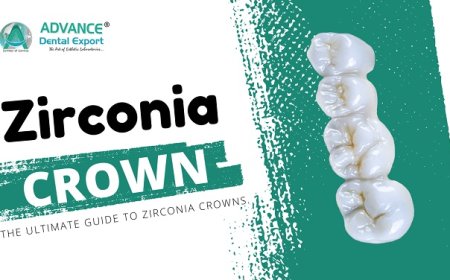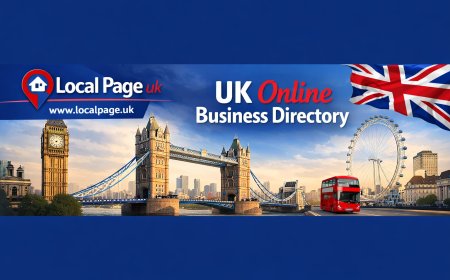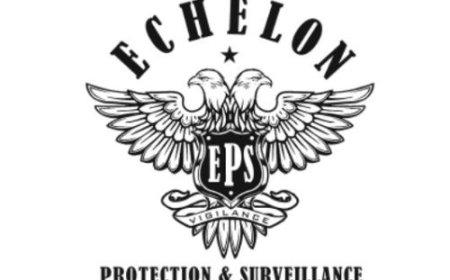Optimizing for Multilingual SEO in Global Markets
Learn how to implement multilingual SEO to reach global markets, boost traffic, and enhance your brand’s international visibility. Expert strategies from Rank Locally UK.

In an increasingly global digital economy, businesses are no longer confined to one region or language. The internet empowers brands to reach customers in various countries but simply translating your website isnt enough. Thats where multilingual SEO comes into play.
Optimizing for multilingual SEO is the process of ensuring your website ranks highly in different languages and regional search engines. It involves a strategic mix of technical SEO, localization, content creation, and cultural awareness.
In this guide, well walk you through how to optimize for multilingual SEO in global markets and why partnering with a Top SEO Company like Rank Locally UK can be the smartest move you make.
Why Multilingual SEO Matters
When businesses expand globally, they often overlook the importance of speaking their customers language literally. Here's why multilingual SEO is essential:
-
Boost Visibility: Appearing in search engines across different countries boosts brand recognition.
-
Improve Engagement: Localized content resonates more with regional audiences.
-
Increase Conversion Rates: Visitors are more likely to convert when they can read content in their native language.
For example, if youre a Web Development Company trying to attract clients in Spain, translating your site to Spanish and optimizing it for Spanish search engines gives you a significant advantage over competitors.
Key Elements of Multilingual SEO
1. Proper Language Tagging (Hreflang)
Hreflang tags tell search engines what language and region your page is targeting. This prevents duplicate content issues and ensures users are served the right version of your websit
This is crucial for SEO, especially if youre offering local SEO services across multiple regions.
2.Local Keyword Research
Keywords differ by region and language. A keyword that performs well in English may not be effective in Japanese. Use tools like Google Keyword Planner, Ahrefs, or SEMrush to identify region-specific search terms.
Working with a Local SEO Company like Rank Locally UK ensures your keyword strategy is on point.
3.Localized Content Creation
This goes beyond translation. Localized content considers:
-
Cultural nuances
-
Currency formats
-
Local holidays and events
-
Measurement units
A Website Design Agency with global experience can craft content that resonates with international audiences.
4.Geo-Targeting in Google Search Console
Use Google Search Console to target specific countries for your multilingual pages. This helps search engines understand the intended audience.
5.Use of Country Code Top-Level Domains (ccTLDs)
For example:
-
.fr for France
-
.de for Germany
Alternatively, you can use subdomains (fr.example.com) or subdirectories (example.com/fr/). Choose the structure that suits your scalability needs.
6.Consistent URL Structure
Avoid machine-generated URLs. Instead, use readable, keyword-rich URLs for each language version.
7.Localized Backlinks
Getting backlinks from reputable local websites can boost your domain authority in that region. Collaborate with influencers or local blogs to earn links.
8.Page Speed Optimization for Different Locations
Use CDNs (Content Delivery Networks) to ensure fast load times globally. Fast-loading websites improve SEO and user experience.
9. Mobile Optimization
Mobile traffic dominates globally. Responsive design ensures your content is accessible, regardless of the device. Leverage help from a Website Designing Company for fully mobile-optimized builds.
10. Multilingual SEO Audits
Regular SEO audits are essential to identify gaps. A SEO Expert will analyze hreflang, duplicate content, backlinks, and more across your language versions.
Common Challenges in Multilingual SEO
-
Automated Translation Errors: Avoid machine translation for web content.
-
Duplicate Content: Google penalizes duplicate pages; use canonical tags wisely.
-
Unoptimized Meta Tags: Ensure titles and descriptions are localized too.
-
Cultural Insensitivity: Language isnt just grammar; its context and emotion.
Multilingual SEO & E-commerce
For ecommerce website designing company and sellers expanding internationally, multilingual SEO can dramatically increase sales. Product descriptions, checkout instructions, and reviews must all be optimized for each language.
The Role of Technical SEO
Multilingual SEO also depends on:
-
XML sitemaps for all language versions
-
Clean code and schema markup
-
SSL certificates for international trust
A Web Development Agency like Rank Locally UK can ensure your technical foundation is flawless.
The Power of Local SEO in Multilingual Strategy
Combining multilingual SEO with local SEO gives you the edge. Whether you're targeting cities in the UK, Germany, or Brazil, you'll need:
Integrating Digital Marketing with Multilingual SEO
You cant succeed globally without a full-stack approach. Partner with a Digital Marketing Agency to align your SEO, PPC, content, and social strategies.
The Best Digital Marketing Company will help amplify your content across channels in every target market.
Reputation Management in New Markets
Online perception is critical. When expanding to new countries, you must monitor how your brand is perceived. Consider working with a Reputation Management Company for:
Promote Your Brand Globally with Rank Locally UK
Whether youre a startup looking to go global or an enterprise expanding your digital reach, Rank Locally UK is your trusted partner. As a leading SEO Agency, we specialize in:
SEO Services
Local SEO for Small Business
Website Development Services
Custom Web Design Services
Digital Marketing Services
ORM Services
Let the Best SEO Expert team scale your brand into international markets with precision and ROI.
Conclusion
Multilingual SEO is more than just translation its localization, cultural adaptation, and search engine alignment rolled into one powerful strategy. If youre serious about global growth, invest in an experienced Best SEO Company that can guide you through the multilingual maze.
With the right combination of content, technical structure, and cultural intelligence, your business can rank and thrive anywhere in the world.
FAQs Optimizing for Multilingual SEO in Global Markets
-
What is multilingual SEO?
Multilingual SEO is optimizing your website to rank in search engines across different languages and countries. -
Why is multilingual SEO important for global businesses?
It ensures you reach and engage your international audience in their native language. -
What is hreflang, and why is it important?
Hreflang tags signal search engines about language versions of your website to avoid duplicate content issues. -
Can I use Google Translate for multilingual content?
No. Always use native speakers or professional localization to avoid errors and maintain quality. -
How does keyword research differ for multilingual SEO?
Each language and region has unique search behaviors and trends requiring custom keyword strategies. -
What structure is best for multilingual sites ccTLD, subdomain, or subdirectory?
All are valid. ccTLDs are best for targeting specific countries, while subdirectories are easier to manage. -
How do I localize content beyond translation?
Adapt content for local customs, currencies, measurements, and idioms. -
Does Google penalize duplicate content in different languages?
No, as long as hreflang tags are used correctly.
Get in Touch
Mobile +91 9212306116
Whatsapp +91 9212 30 6116
Website- https://ranklocally.uk/
Email contact@ranklocally.uk































